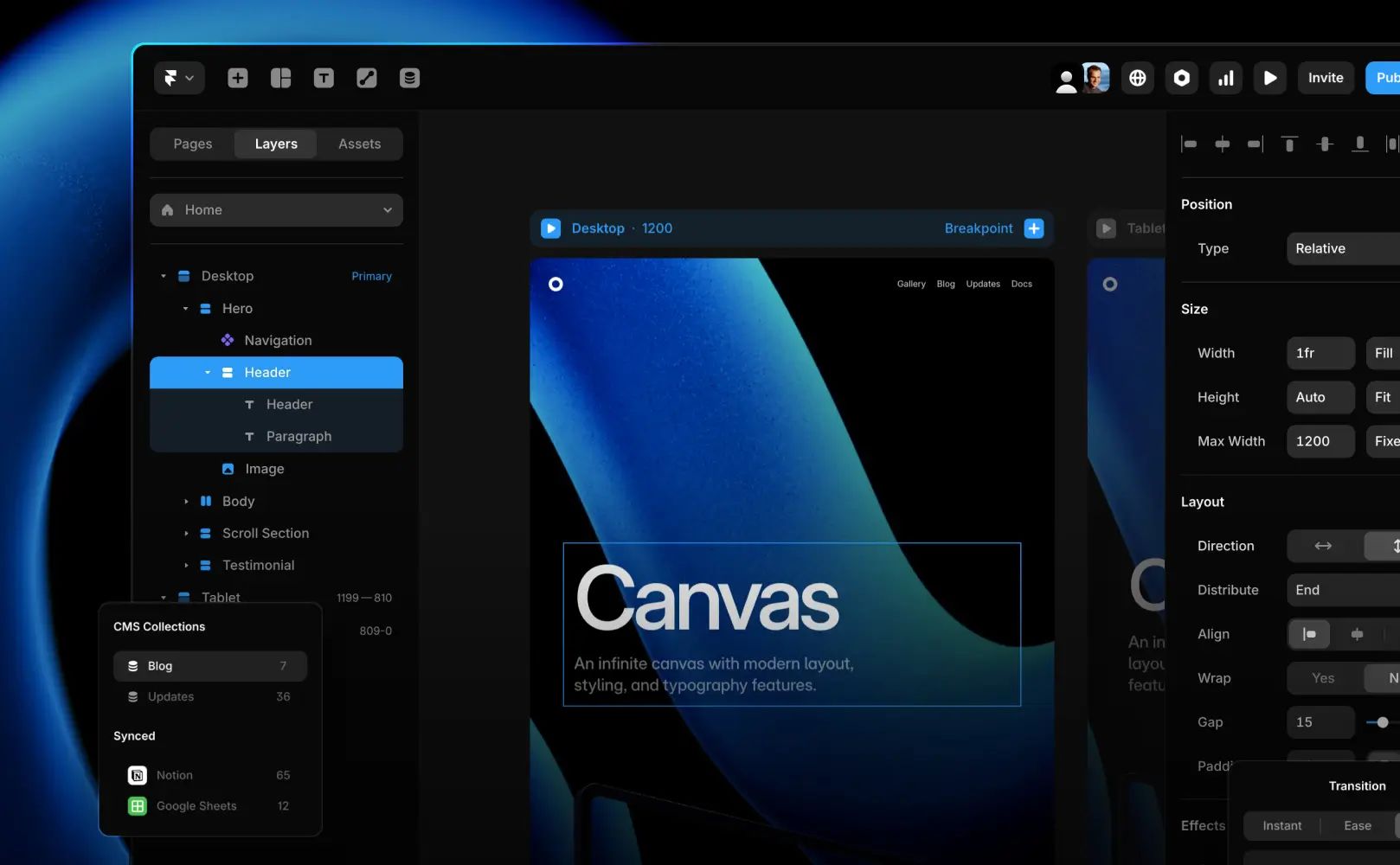
After spending hours (or days, I might have lost count) last year I was able to build a few small AI automations that would take data from point A to B, analyse it in the middle and do certain actions. Turns out this year we now have AI agents that do the same, but without wasting the hours and days of time.
Before delving deep into this, I had no clue what AI agents really are. I still wasn't able to even figure out a good prompt for midjourney to be able to create myself a decent image. But like anything else, I jumped straight into the deep end and learnt it. So in this piece of writing, I'll try to break down in the easiest way possible:
- What AI agents are
- How can they help you or your business and
- Bow can you build your own AI agent without loosing sleep
So what are AI agents
I found this whole AI mumbo-jumbo so confusing when I started and so I told myself, that once I deeply understand it, I will try share it in the most non-AI and human way possible. Some people or large scale agencies love to complicate stuff but in simplest form, AI agents are
“AI agents are systems that follow a set of instructions to get things done. They can connect to outside sources or use their own data to make decisions and take actions. Over time, they learn from the data they receive and get better at what they do.”
This is not a quote from some big author but my simplest defenition of what AI agents are at the core.
My first question was: How are AI agents different from AI chatbots?
Chatbots wait for you to ask something. Agents go a step further, they take action, solve problems and get things done on their own. It’s like the difference between someone telling you what data means and someone actually doing the analysis for you. Reactive vs Proactive approach, as I tell my accountant.
What are some real world use cases of AI agents?
Great, now we roughly know what AI agents are but what are some real-world applications of AI agents, and what can they really do?
In theory, almost anything that is repetitive, requires data analysis and some level of decision. That's a bit wide defenition but it's not very far from truth.
Unlike traditional AI models that handled isolated tasks, AI agents have the capability to manage multiple tasks and data sets and make an overall bird's eye view decision or action on it.
AI agents for Sales
An AI agent can take your Zoom or Google meets call script and analyse it against predefined work scope. Based on the analysis it will
- Breaks down key metrics like total call time and how long each phase took and suggest you with the next action, plan, negotiation ideas and more.
- Summarizes the call with specific examples and clear suggestions for improvement.
- Automatically updates the original Google Sheets, Hubspot or almost any CRM with the full evaluation summary.
How can AI help real estate agents?
While we are on topic of sales, these two agents can make a great business combo.
Each morning, it scans my calendar, digs into my leads, and pulls up useful info, like who just moved to Dubai, Sydney, Auckland or whichever city you are in, for a tech job or who’s been eyeing Real estate listings in Grey Lynn at 2 a.m.
It packages it all into a neat little summary before you have even finished my coffee. It even sends polite follow-ups to prospects who’ve gone quiet. Basically, it’s like having a super-organised assistant with zero small talk.
No, it won’t host open homes for your customers, not yet at least, but it does help you show up sharper, smarter, and way more prepared. In Dubai real estate market, we even saw some AI driven sales calls agents that are having human-like conversations on phone, with potential clients.
AI agents for Social media and Marketing
An AI agent can research trending topics in your niche, after analysis it can pick the most promising one and creates scripts for short and long-form videos, complete with hooks, B-roll ideas, and filming notes. Alternatively it can integrate with something like Open-AI and write content (blog posts) for you with internal links and keywords based on your business niche.
For social media marketing, it will write captions, hashtags and even a newsletter which you can connect to a mailing app (Mailchimp, Mailerlite, Klaviyo, etc) to auto-send and post to promote the content.
For email marketing, an agent can do content research, create a draft, turn it into a well-designed (subjectively) newsletter and send to your mailing list. Repeat this monthly and your email marketing is already outsourced to this agent.
AI agents can also work as your social media managers with auto-replies and engagement.
AI agents for Product Designers
AI agents are like proactive design assistants that don’t just wait for commands, they take initiative.
For product and UI/UX designers, this means faster research, automated competitor analysis, idea generation based on user feedback and even analyse the user feedbcak. Then build wireframes or user flows based on given goals and feedback.
Instead of juggling dozens of tabs or repetitive tasks, designers can focus on solving real problems—while AI handles the grunt work, surfaces insights, and keeps projects moving.
Say you’re designing a finance app. An AI agent could analyze top competitors, summarize user reviews to highlight common pain points and generate user flow suggestions tailored to your target audience. It might even draft a few onboarding screen layouts so you can hit the ground running.
AI agents for Executives, C-Suite and Business owners
Each morning at 6:00 AM, your AI agent wakes up, scans your Google Calendar for the day’s meetings. For any attendees outside your company, it looks them up online, pulling details like their job titles, companies, and backgrounds. Then it sends you a tidy Slack or WhatsApp summary for each meeting. No digging, no guesswork, just the context you need to show up sharp and ready.
These are just a few examples of AI orchestration that's possible all without writing much code at all and a set-and-forget method.
What's amazing about this is the self-improvement these AI agents can do to further refine their process, analysis methods and even decision making for you. This means, unlike James who was made redundant last year because he was spending more time at pool table and never up-skilling, these agents don't go redundant but can always self-improve, at a fraction of James' salary ofcourse.
What is the impact of AI agents on job market
Let’s clear something up: AI agents aren’t here to steal your job, they’re here to stop your job from stealing your time.
You’ve probably heard the doomsday headlines: “AI will replace 800 million jobs!” and sure, if your job is 100% repetitive, maybe it’s time to upskill. But for the most part, AI agents are more like overachieving interns who never sleep. They handle the boring bits: scheduling, summarising meetings, sorting through data, following up on emails… all the stuff that eats up your day but doesn’t exactly spark joy.
Take marketers, for example. Instead of spending hours researching trending topics or drafting social posts, an AI agent can pull data, suggest ideas, and even write decent first drafts. Designers? Imagine having an agent that preps user feedback or suggests layout tweaks based on analytics. You’re not being replaced—you’re being backed up.
It’s less about job loss and more about job evolution. You still need real people to guide strategy, make judgment calls, and add that human touch. AI agents just help you do more of that good stuff by taking care of the grunt work. It’s like moving from hand-washing clothes to using a washing machine, same job, way less hassle.
Of course, this shift means roles will change. Some tasks will disappear, others will be redefined. But the endgame isn’t some AI or robot apocalypse. It’s giving people the freedom to focus on high-impact work, creativity and decision-making, the things humans are actually great at.
So no, your job isn’t going away. It’s just getting an upgrade with a digital sidekick who’s scarily efficient at writing polite emails, doing research and helping you with repetitive tasks.
How to build your first AI agent
So you’ve a basic understanding of What are AI agents and want to build one yourself? Good news, it’s easier than you think, especially with the no-code tools out there now. However, it can also get super overwhelming if you start with complex structure.
Understand different types of AI agents and decide the type of agent you want to build
There are many different types of AI agents you can build, some of them are:
- Task agents: complete specific jobs, like writing emails or generating reports.
- Multi-step agents: follow a process, like qualifying a lead or prepping for meetings.
- Autonomous agents: make decisions on the fly based on rules and data.
- Looping agents: run on a schedule, like daily research or monitoring updates.
Map out a journey and goal for your agent
One of the most important but unpopular beginner tips for building your first AI agent would be: to start small and with a very simple example system or scenario, sketch it out on a paper thinking, I want my agent to do this to that, from point A of the journey to point C, set a goal and a small journey drawing on a piece of paper.
Pick your tools
You don't need to learn how to code at this stage, just the right tools.
- Automation tool
To connect apps, automate the workflow (journey) and trigger events such as: if this happens do this.Some of the most popular automation tools are - GPT model
Use GPT models to add intelligence, writing, summarizing, decision-making and research. ChatGPT is popular for this but feel free to use any others. You can integrate this within your automation tool like Zapier, n8n and Make, all of these include GPT models integration with a single click
- Data storage and collection
Store data, track inputs/outputs. For example if you are using this for social media management, you'll need a place where the agent stores all captions, hashtags etc. For this you can use any database app or even Google Sheets. For advanced data storage, check out Airtable, supabase. Alternatively you can also use Notion or good old Google sheets.
Example goal for creating your first AI based agent
For example, create your first “Meeting Prep Agent”
The steps will look something like this:
- Zapier checks your Google Calendar every morning.
- Finds upcoming meetings with external guests.
- Uses OpenAI to look up guests’ companies and write a quick summary.
- Sends the summary to Slack or Gmail / outlook, or stores it in your Google sheet or Google doc.
It’s useful, simple, and a great intro to what agents can do. You can do all of this within your Automation tools like Make.com, Zapier or n8n by connecting your apps within. All this happens automatically, every morning in seconds. You can even ask your GPT model to read out the summary to you while you sip your coffee or commute your way to work.
Make sure you test and tweak the agent before going out public with it.
How do we help businesses with automation and AI agents
Several business we partner with want to add efficienies and automation to their operations. Saving them time and costs. We help adding automation to accouting, social media marketing, internal and external meeting workflows, sales operations and more. If this is something you might be interested in, book a free consultation with us.








